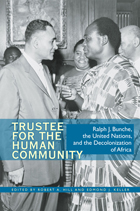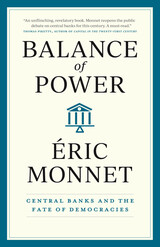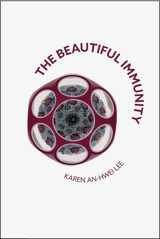
Nobel Peace Prize winner Ralph Johnson Bunche (1904-71) was one of the twentieth century’s foremost diplomats and intellectuals. In the wake of centennial celebrations of his birth, leading scholars and diplomats assess Bunche’s historical importance and enduring impact on higher education, public policy, and international politics. Their essays reveal not only the breadth of Bunche’s influence, such as his United Nations work to broker peace during times of civil war in Africa, the Middle East, and Asia, but also the depth of his intellectual perspectives on race, civil rights, higher education, and international law. Probing his publications, speeches, and public policy initiatives, the volume offers telling insights into the critical roles of universities, public intellectuals, and diplomats in working together to find solutions to domestic and international problems through public and scholarly engagement. In this way, the volume highlights the very connections that Bunche exhibited as an academic, intellectual, and diplomat.
Contributors include Lorenzo DuBois Baber, John Hope Franklin, Jonathan Scott Holloway, Charles P. Henry, Ben Keppel, Beverly Lindsay, Princeton Lyman, Edwin Smith, and Hanes Walton Jr.

Ralph J. Bunche (1904–1971), winner of the Nobel Peace Prize in 1950, was a key U.S. diplomat in the planning and creation of the United Nations in 1945. In 1947 he was invited to join the permanent UN Secretariat as director of the new Trusteeship Department. In this position, Bunche played a key role in setting up the trusteeship system that provided important impetus for postwar decolonization ending European control of Africa as well as an international framework for the oversight of the decolonization process after the Second World War.
Trustee for the Human Community is the first volume to examine the totality of Bunche’s unrivalled role in the struggle for African independence both as a key intellectual and an international diplomat and to illuminate it from the broader African American perspective.
These commissioned essays examine the full range of Ralph Bunche’s involvement in Africa. The scholars explore sensitive political issues, such as Bunche’s role in the Congo and his views on the struggle in South Africa. Trustee for the Human Community stands as a monument to the profoundly important role of one of the greatest Americans in one of the greatest political movements in the history of the twentieth century.
Contributors: David Anthony, Ralph A. Austen, Abena P. A. Busia, Neta C. Crawford, Robert R. Edgar, Charles P. Henry, Robert A. Hill, Edmond J. Keller, Martin Kilson, Georges Nzongola-Ntalaja, Jon Olver, Pearl T. Robinson, Elliott P. Skinner, Crawford Young

Thirty years after the greatest legislative triumphs of the civil rights movement, overcoming racism remains what Martin Luther King, Jr., once called America’s unfinished “work of democracy.” Why this remains true is the subject of Ben Keppel’s The Work of Democracy. By carefully tracing the public lives of Ralph Bunche, Kenneth B. Clark, and Lorraine Hansberry, Keppel illuminates how the mainstream media selectively appropriated the most challenging themes, ideas, and goals of the struggle for racial equality so that difficult questions about the relationship between racism and American democracy could be softened, if not entirely evaded.
Keppel traces the circumstances and cultural politics that transformed each individual into a participant-symbol of the postwar struggle for equality. Here we see how United Nations ambassador Ralph Bunche, the first African American to receive the Nobel Peace Prize, came to symbolize the American Dream while Bunche’s opposition to McCarthyism was ignored. The emergence of psychologist and educator Kenneth B. Clark marked the ascendancy of the child and the public school as the leading symbols of the civil rights movement. Yet Keppel details how Clark’s blueprint for “community action” was thwarted by machine politics. Finally, the author chronicles the process by which the “American Negro” became an “African American” by considering the career of playwright Lorraine Hansberry. Keppel reveals how both the journalistic and the academic establishment rewrote the theme of her prizewinning play A Raisin in the Sun to conform to certain well-worn cultural conventions and the steps Hansberry took to reclaim the message of her classic.
The Work of Democracy uses biography in innovative ways to reflect on how certain underlying cultural assumptions and values of American culture simultaneously advanced and undermined the postwar struggle for racial equality.
READERS
Browse our collection.
PUBLISHERS
See BiblioVault's publisher services.
STUDENT SERVICES
Files for college accessibility offices.
UChicago Accessibility Resources
home | accessibility | search | about | contact us
BiblioVault ® 2001 - 2024
The University of Chicago Press









